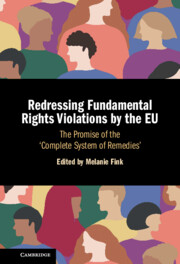The European Union, Emerging Global Business and Human Rights
Emerging and developing states are home to powerful corporations capable of deploying economic activities on a global scale through the rapid pace of technological change and globalisation. But such corporations have to date been largely overlooked in the field of business and human rights. Treatment of such corporations has typically been in the context of supply chain studies, as subsidiaries of corporations from economically developed Western states. This book takes a radically different approach. It aims to investigate the conditions under which the European Union and its Member States regulate and remedy human rights violations by corporations from emerging and developing states. Stemming from the hypothesis that the EU intends to play a central role, Aleydis Nissen explores how the EU and its Member States attempt to ensure that EU-based businesses are not undercut by emerging competition, drawing on global examples to illustrate this developing phenomenon.�
- Provides a comprehensive and up-to-date account of the European Union's business and human rights agenda internationally, offering a compelling understanding of older and recent EU material, as well as original insights on non-Western businesses to stimulate new discussion
- Integrates the complex vertical and horizontal dynamics that are relevant to the creation of regulation in the field of business and human rights at the international, EU and (trans)national levels
- Takes a mixed approach towards civil judicial remediation, discussing both extraterritorial remediation in courts in EU Member States and support for local remediation outside the EU and uncovering patterns of exclusion and power dynamics acting as barriers to justice
Reviews & endorsements
‘… a commendable scholarly contribution, offering a rich tapestry of insights into the laws, economics, and politics shaping the evolving European framework on business and human rights. The book’s strengths lie not only in its methodological diversity but also in its ability to bridge theory and practice, making it an indispensable resource for scholars, policymakers, and practitioners.’ Leonard Feld, Common Market Law Review
Product details
November 2022Hardback
9781009284301
288 pages
235 × 159 × 29 mm
0.67kg
Available
Table of Contents
- 1. Introduction
- Part I. International Perspective:
- 2. International law
- Part II. Perspective of the European Union and its Member States:
- 3. The European Union
- 4. European Union Member State: France
- 5. European Union Member State: The Netherlands
- Part III. Perspective of Developing and Emerging States:
- 6. Case Study: Kenyan Floriculture Industry
- 7. Case Study: South Korean Electronics Industry
- 8. Conclusions.







.jpg)
